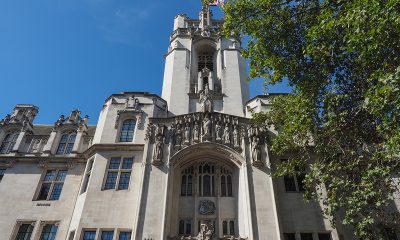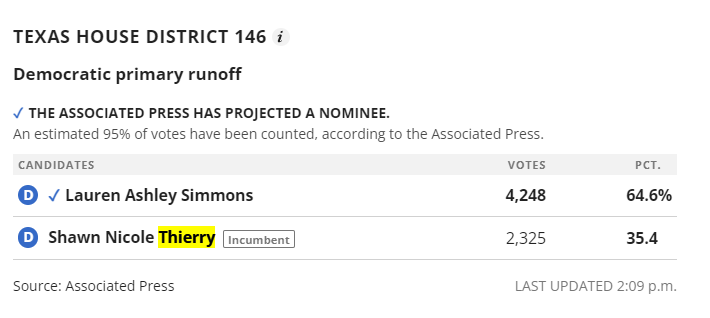Texas
Texas House approves anti-trans youth sports bill
HB 25 now heads to state Senate
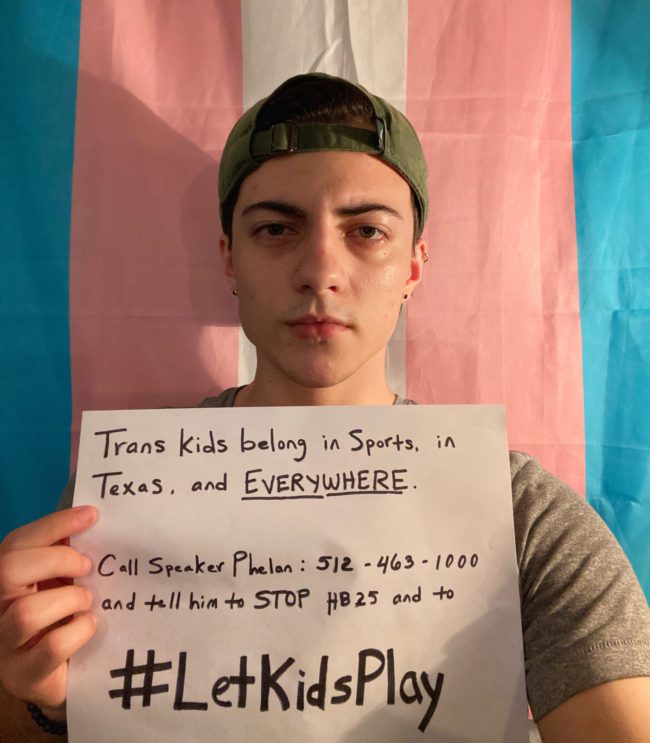
Texas House Republicans were able to push through the anti-trans youth sports measure Thursday evening after hours of emotional and at times rancorous debate, passing the bill in a 76-54 vote along party lines.
Under the provisions of Texas House Bill 25, all trans student athletes in grades K-12 will be prohibited from competing on sports teams aligned with their gender identity. The bill will now head to the Senate, where it is expected to pass.
The Texas Tribune reported that the University Interscholastic League, which governs school sports in Texas, already requires that an athlete’s gender be determined by the sex listed on their birth certificate. Republican Rep. Valoree Swanson, R-Spring, the author of HB 25 has said the bill would simply “codify” existing UIL rules.
However, UIL recognizes any legally modified birth certificates. That policy could accommodate someone who may have had their birth certificate changed to match their gender identity, which can sometimes be an arduous process.
HB 25 would not allow recognition of these legally modified birth certificates unless changes were made because of a clerical error. It’s not clear though how it will be determined if a birth certificate has been legally modified or not. According to the UIL, the process for checking student birth certificates is left up to schools and districts, not the UIL the Tribune reported.
“To say that tonight’s passage of HB 25 is devastating is an understatement. For the past 10 grueling, exhausting, and deeply traumatic months, trans youth have been forced to debate their very existence—only to be met by the deaf ears and averted eyes of our state’s leaders,” Landon Richie, a GenderCool Project leader, University of Houston student and Transactivist told the Washington Blade after the vote.
“Make no mistake: This bill will not only have detrimental impacts on trans youth, who already suffer immense levels of harassment and bullying in schools, but also on cisgender youth who don’t conform to Texas’s idea of ‘male’ or ‘female.’ To trans kids everywhere: you belong, you are loved, you are valued, you are deserving of dignity, respect, care and the ability to live freely as your true and authentic selves, no matter where you are. We will never stop fighting for trans lives and a future where trans kids are unequivocally and unwaveringly celebrated for who they are,” Richie said.
“The cruelty of this bill is breathtaking, and the legislators who are pushing it forward are doing irreparable harm to our state. Texas is a place where people value freedom and respect for diversity. This bill is a betrayal of those cherished values, and future generations will look back on this moment in disbelief that elected officials supported such an absurd and hateful measure,” Shannon Minter, legal director for the National Center for Lesbian Rights told the Blade. “The families of these kids deserve better, and the burden is now on the rest of us to do everything in our power to stop this dangerous bill now,” he added.
During the debate on the measure, state Rep. James Talarico, (D-Round Rock), a former middle school teacher, began his remarks by apologizing to the trans kids and families who have gone to the Capitol time and time again this year. He tells the chamber he speaks now as a legislator, and educator, and a Christian.
He quoted Republican Rep. Valoree Swanson, R-Spring, the author of HB 25 who said “if one girl wins a game, it’s worth it.” He says he has a different moral yardstick. “If one trans kid dies for a trophy, this bill is grotesque.”
He ended speaking to his “fellow believers” in the chamber. “The worst part in these hearings have been in hearing the Bible used against trans kids to support these bills. Even tonight, ‘God’s law’ was used to present an amendment.” He then quoted the first two lines of the Bible, where God is referred to with two different Hebrew words, one masculine/one feminine. “God is non-binary.” He then prevented an interruption in the chamber and continued telling trans kids that he loves them.
Fellow Democratic state Rep. Jessica González, (D-Dallas County), vice-chair of the Texas House LGBTQ Caucus asked the chamber how many trans Texas kids they are willing to hurt. She reminded her fellow representatives that cisgender women and girls will also be hurt by the bill. She shared a personal story about being outed in high school by a friend, having her locker, home, and car vandalized and losing all of her friends. “Kids are cruel.”
González told lawmakers that her brother encouraged her to try out for soccer, and she was bullied with comments like “shouldn’t she be trying out for the boys’ team.” She went from feeling a bit accepted to being an outsider again. She then reflected on carrying those feelings into adulthood and said that this bill will have long-term affects on trans kids. She asked legislators to listen to the stories of the trans kids who have bravely testified, saying kids will contemplate suicide or complete suicide.
Representative Diego Bernal, (D-San Antonio), told the chamber that some representatives can’t wrap their heads around knowing that there is no problem but there is *real* harm to trans kids, and for whatever reason, that’s not enough it seems to stop moving these bills.
He said that he has heard “if they already have mental health issues and suicide ideation, this can’t make it worse” and “if the debate is harming them, let’s just vote.” The he breaks down the Texas statute’s definition of bullying, telling lawmakers, “The bullying statute doesn’t have an intent requirement. It doesn’t matter if you don’t mean to cause them harm. We are bullying these students. Know that by law … our own definitions and our own words, we are. And we don’t have to.”
“Texas lawmakers voted today to deliberately discriminate against transgender children. Excluding transgender students from participating in sports with their peers violates the Constitution and puts already vulnerable youth at serious risk of mental and emotional harm,” Adri Perez, policy and advocacy strategist at the ACLU of Texas said in a statement to the Blade.
“There is no evidence that transgender kids pose any threat. It is indefensible that legislators would force transgender youth and their families to travel to Austin to defend their own humanity, then blatantly ignore hours of testimony about the real damage this bill causes. Trans kids and their families deserve our love and support—they’ve been fighting this legislation for months. Texans will hold lawmakers accountable for their cruelty,” she added.
The statewide LGBTQ+ advocacy group Equality Texas in a tweet after the vote said; ” We will not stop fighting to protect transgender children.” Then added “We’ll continue to educate lawmakers—replacing misinformation with real stories—and demand the statewide and federal nondiscrimination protections we need to prevent further harms.”
We’ll continue to educate lawmakers — replacing misinformation with real stories — and demand the statewide and federal nondiscrimination protections we need to prevent further harms.
— Equality Texas (@EqualityTexas) October 15, 2021

Texas
Texas lawmaker introduces bill to criminalize identifying as transgender
Republican’s proposal unlikely to pass
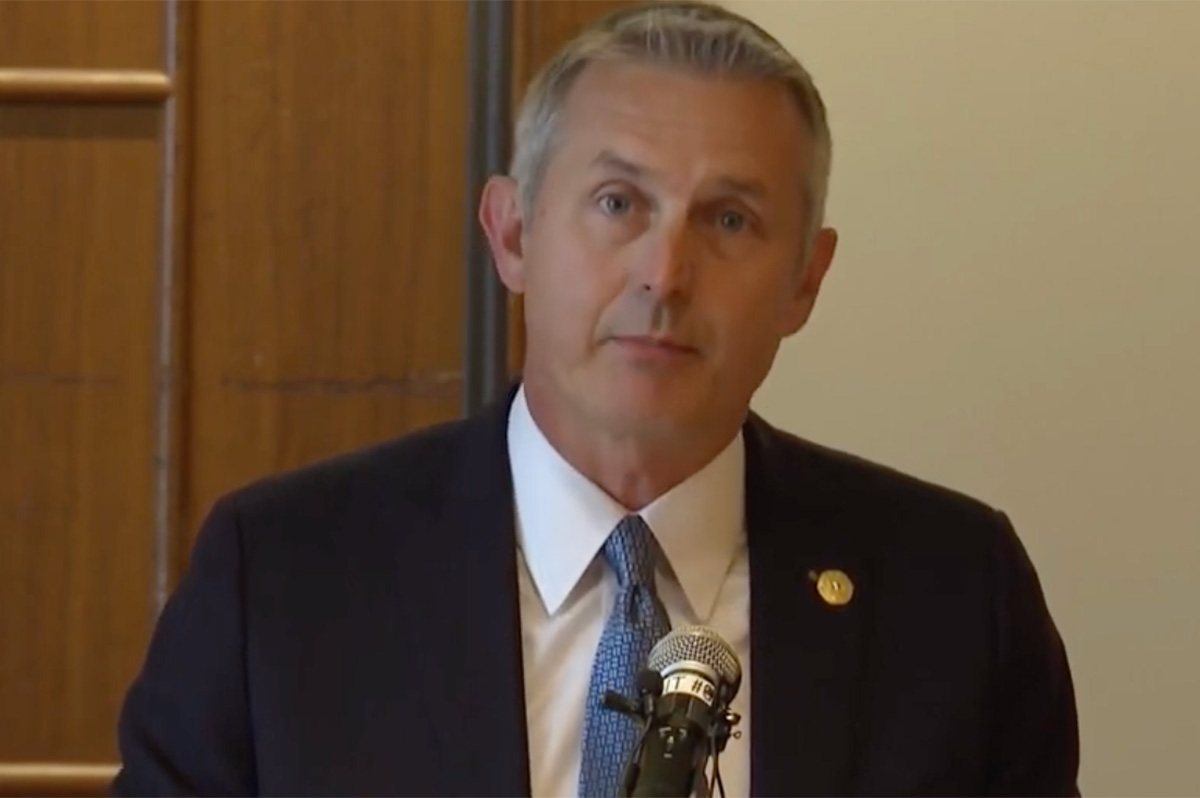
Republican Texas state Rep. Tom Oliverson introduced a bill last week that would prohibit Texans from identifying themselves as transgender on official documents.
The legislation would classify as a state felony the act of “knowingly [making] a false or misleading verbal or written statement” by identifying one’s birth sex incorrectly to a governmental entity or to an employer.
While the bill, according to the Houston Chronicle, does not yet have any cosponsors and is considered unlikely to pass, the effort underscores conservative lawmakers’ turn toward increasingly extreme measures targeting the trans community, particularly in Texas.
For example, Republican state Rep. Brent Money introduced a bill last month that would have expanded the 2023 law barring gender affirming health treatments for minors by also prohibiting providers from offering puberty-suppressing medication, hormone therapy or surgeries to adults if the purpose is to affirm their gender identity.
Equality Texas reports that the state legislature has seen more than 170 bills targeting the LGBTQ community so far this year.
Oliverson in 2024 unsuccessfully challenged the chamber’s Republican speaker, Dade Phelan.
Texas
Anti-trans Texas Democrat loses primary to queer woman
Lauren Ashley Simmons defeated state Rep. Shawn Thierry
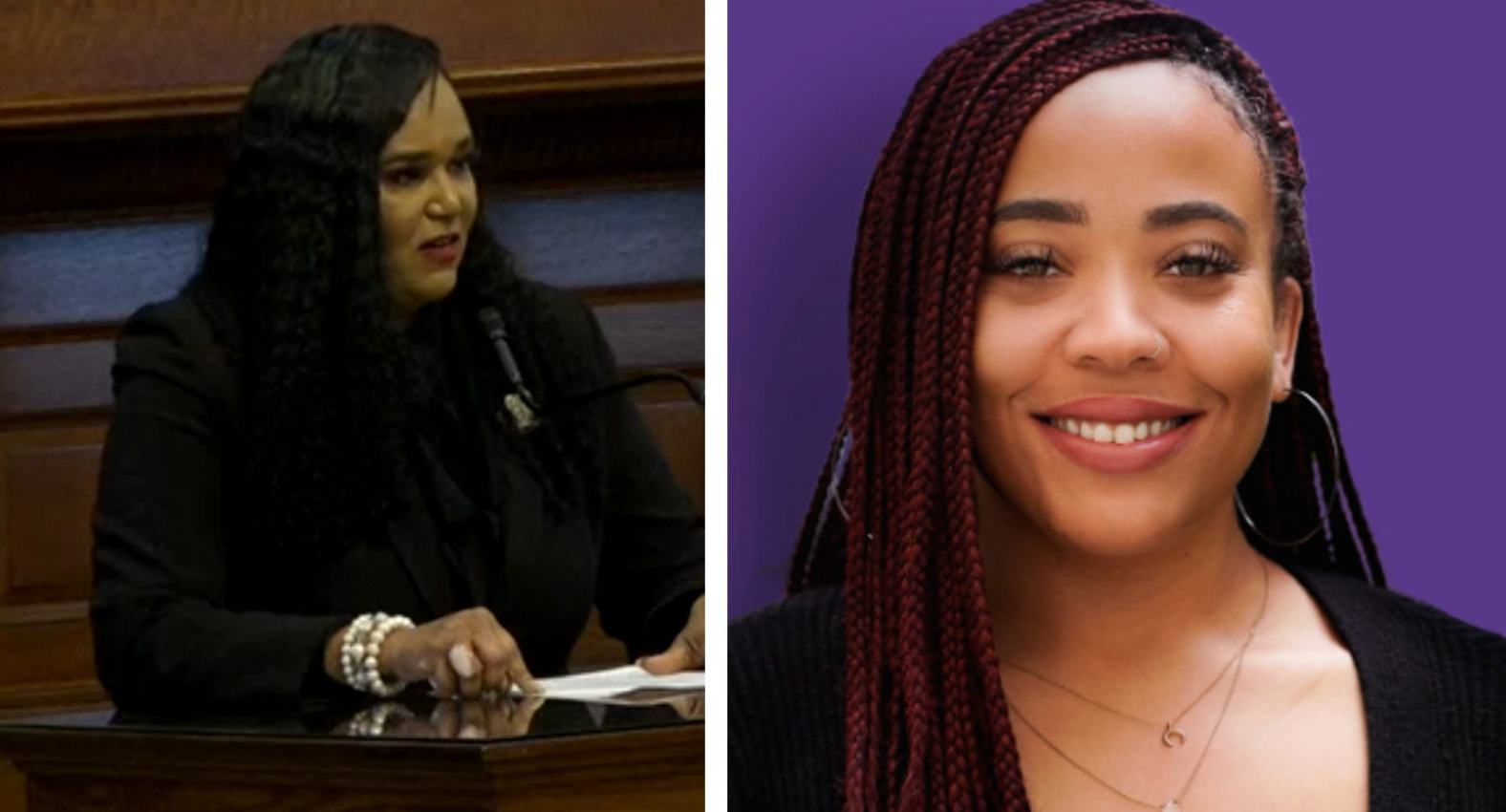
BY ERIN REED | Houston Democratic Texas House of Representatives incumbent Shawn Thierry was trounced in a primary runoff election on Tuesday.
Thierry was one of only a handful of Democrats across the country who broke ranks with her party and voted for a ban on gender-affirming care for transgender youth, delivering a lengthy and misinformation-filled speech in doing so.
After her anti-trans vote, queer union organizer Lauren Ashley Simmons stepped forward to unseat her, earning dozens of influential endorsements from party leaders and organizations. On Tuesday night, Simmons left no doubt about her victory: She resoundingly won by a 65-35 percent margin.
On May 12, Thierry voted to pass a gender-affirming care ban for trans youth, an exceedingly rare vote for a Democrat. In doing so, she spoke on the House floor, calling trans girls “biological males” and arguing that conversion therapy was the true solution to gender dysphoria.
She also voted against every amendment intended to mitigate the harm the bill would cause trans youth in the state. This led to a vote to censure Thierry by the Meyerland Area Democrats, who reported feeling betrayed by her earlier assurances that she was an ally to the LGBTQ community.
Thierry’s district, the 146th District of the Texas House of Representatives, is not a swing district. It includes predominantly Black and Latino neighborhoods in Houston that tend to vote heavily Democratic. Previously, Thierry had beaten a Libertarian candidate by a 87-13 percent margin, with no Republican running in the race. Thus, whoever wins the Democratic primary in the district is likely to represent the district in the Texas House of Representatives.
Enter Simmons, a queer union organizer who ran in opposition to Thierry’s anti-LGBTQ votes and activism. In her announcement that she would be challenging Thierry in the primary, Simmons stated, “Our current representative has lost her way and now votes with Greg Abbott and Republicans to take away our rights, destroy our public schools, and hurt our kids.”
Simmons quickly garnered major endorsements, an uncommon feat for a primary challenger to an incumbent politician. Equality Texas, the LGBTQ+ Victory Fund, and LPAC, all significant LGBTQ organizations, endorsed her.
She also secured major union endorsements from the American Federation of Teachers, the AFL-CIO, and the Service Employees International Union. Additional support came from Planned Parenthood, Harris County Young Democrats, and Run for Something. High-profile congressional endorsements included Congresswomen Jasmine Crockett and Lizzie Fletcher, as well as former Congressman Beto O’Rourke.
In the lead-up to the election, which was quickly becoming a referendum on whether anti-trans politics could gain a foothold in the Democratic Party, Thierry did not tone down her anti-LGBTQ sentiment. She participated in “faith walks” with major local churches supportive of her stance and relied heavily on Republican donations.
When asked about her anti-trans votes, she called gender-affirming care “Black genocide.” Thierry’s statements were decried by major community members, including Diamond Stylz Collier, who leads the Texas nonprofit Black Trans Women Inc. Collier called the comments disgusting, stating, “We have an increase of trans people dying of violence around the country and a real-life genocide happening in other parts of the globe.”
As votes poured in on Tuesday evening, it became clear that Simmons would be the victor. She secured a decisive majority, with the district voting 65-35 percent in her favor over Thierry. Reflecting on her victory, Simmons stated, “Thanks to your amazing support, we all won BIG last night! We are so grateful, and so proud of the strong message this decisive victory sends to those who seek political gain by using bigotry, hatred, and fear: STOP. Thank you!”
Increasingly, anti-trans influencers are attempting to make inroads into left-leaning politics, a strategy that has seen mixed results internationally. In the U.K., for instance, the Labour Party has been notoriously poor on trans rights.
In the U.S., however, these efforts have met with far less success. Just yesterday in California, an attempt to place a gender-affirming care ban on the ballot was defeated. Similarly, in most states, Democrats have remained steadfast against anti-transgender legislation. Now, even in a conservative state like Texas, it is evident that there is little appetite within the party for sacrificing transgender rights, and doing so could jeopardize one’s political career.
******************************************************************************************

Erin Reed is a transgender woman (she/her pronouns) and researcher who tracks anti-LGBTQ+ legislation around the world and helps people become better advocates for their queer family, friends, colleagues, and community. Reed also is a social media consultant and public speaker.
******************************************************************************************
The preceding article was first published at Erin In The Morning and is republished with permission.
Texas
Pornhub blocks Texas accessing site over age verification law
Court battle forced statute to take effect

Aylo (formerly MindGeek) the largest global adult online entertainment conglomerate, owned by Canadian private equity firm Ethical Capital Partners, has restricted access to its platforms including its flagship Pornhub in Texas after a court battle forces the state’s age verification law to take effect.
Texas Republican Attorney General Ken Paxton had appealed a U.S. District Court decision that enjoined him from enforcing House Bill 1181. Paxton and others argued that purveyors of obscene materials online needed to institute reasonable age-verification measures to safeguard children from pornography.
A week ago the 5th U.S. Circuit Court of Appeals partially vacated the original injunction, ruling that the age verification requirements are constitutional.
“Applying rational-basis review, the age-verification requirement is rationally related to the government’s legitimate interest in preventing minors’ access to pornography,” the three judge panel of the 5th Circuit explained. “Therefore, the age-verification requirement does not violate the First Amendment.”
While the court vacated the injunction against the age-verification requirement of the statute, it upheld the lower court’s injunction against a separate section of the law that would require pornography websites to display a health warning on their landing page and all advertisements.
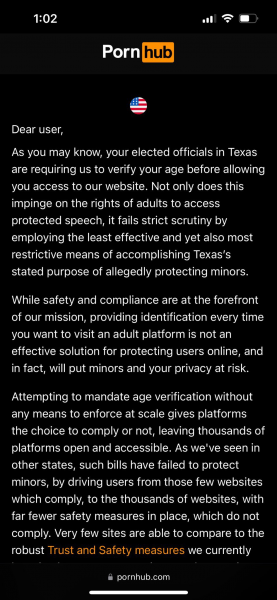
The Houston Chronicle reported people who go to the site are now greeted with a long message from the company railing against the legal change as “ineffective, haphazard, and dangerous.” The company calls for age verification by the makers of devices that let people on the internet, instead of individual websites.
Age verification legislation was enacted in several states in 2023 in addition to Texas, including North Carolina, Montana, Arkansas, Louisiana, Mississippi, Utah and Virginia.
The new laws require users to provide digital confirmation via a certified approved third party vendor like London-based digital identity company Yoti. The other possibility would be a state approved digital ID such as the California DMV’s Wallet app, which contains a mobile driver’s license.
Users accessing Pornhub from within Louisiana are presented with a different webpage that directs them to verify their age with the state’s digital ID system, known as LA Wallet. The law passed in 2022 subjects adult websites to damage lawsuits and state civil penalties as high as $5,000 a day if they fail to verify that users are at least 18 years old by requiring the use of digitized, state-issued driver’s licenses or other methods.
The Associated Press reported this past October that an adult entertainment group’s lawsuit against a Louisiana law requiring sexually explicit websites to verify the ages of their viewers was dismissed by U.S. District Judge Susie Morgan in New Orleans.
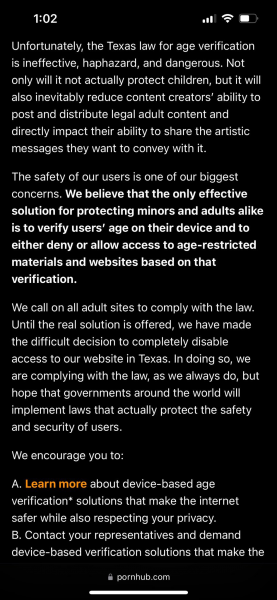
Potential or existing Pornhub users in North Carolina and Montana are directed to a video that features adult film star Cherie DeVille, who recites a message also written under the video.
“As you may know, your elected officials in your state are requiring us to verify your age before allowing you access to our website. While safety and compliance are at the forefront of our mission, giving your ID card every time you want to visit an adult platform is not the most effective solution for protecting our users and in fact, will put children and your privacy at risk.”
“Mandating age verification without proper enforcement gives platforms the opportunity to choose whether or not to comply,” the statement continues. “As we’ve seen in other states, this just drives traffic to sites with far fewer safety measures in place.”
“Until a real solution is offered, we have made the difficult decision to completely disable access to our website in [the aforementioned locales]” the message ends with.
The company previously blocked Utah on May 7, 2023. CNN reported at the time:
Affected users are shown a message expressing opposition to Senate Bill 287, the Utah law signed by Gov. Spencer Cox in March that creates liability for porn sites that make their content available to people below the age of 18.
“As you may know, your elected officials in Utah are requiring us to verify your age before allowing you access to our website,” the message said. “While safety and compliance are at the forefront of our mission, giving your ID card every time you want to visit an adult platform is not the most effective solution for protecting our users, and in fact, will put children and your privacy at risk.”
Courthouse News reported that after Virginia’s bill was passed in June, state Sen. L. Louise Lucas, a Democrat, criticized the state for not creating a system for age verification, and instead leaving it up to websites to manage the process, citing security risks.
“We passed a bill during this session to protect children from online porn. However the executive branch had an obligation to create a system for age verification,” Lucas said on X, formerly Twitter. “We will continue our work to keep pornography out of the hands of minors … but we will also work to ensure that this Governor’s error does not put the privacy of Virginians at further risk.”
Beyond the U.S. in the European Union, Pornhub and two more of the world’s biggest porn websites face new requirements in the European Union that include verifying the ages of users, under the EU’s Digital Services Act.
According to a December 20 report from the Associated Press, Pornhub, XVideos and Stripchat have now been classed as “very large online platforms” subject to more stringent controls under the Digital Services Act because they each have 45 million average monthly users, according to the European Commission, the EU’s executive branch.
They are the first porn sites to be targeted by the sweeping Digital Services Act, which imposes tough obligations to keep users safe from illegal content and dodgy products, the Associated Press reported last month.
In addition to the adult entertainment websites, any violations are punishable by fines of up to 6% of global revenue or even a ban on operating in the EU. Some 19 online platforms and search engines have already been identified for stricter scrutiny under the DSA, including TikTok, Amazon, Facebook, Instagram, Google and more.
-

 District of Columbia3 days ago
District of Columbia3 days agoReenactment of 1965 gay rights protest at White House set for April 17
-

 District of Columbia3 days ago
District of Columbia3 days agoFinal push to raise funds, fill D.C. hotels as WorldPride nears
-

 Maryland3 days ago
Maryland3 days agoFreeState Justice: Transgender activist ‘hijacked’ Moore’s Transgender Day of Visibility event
-

 Hungary3 days ago
Hungary3 days agoHungarian MPs amend constitution to ban public LGBTQ events


